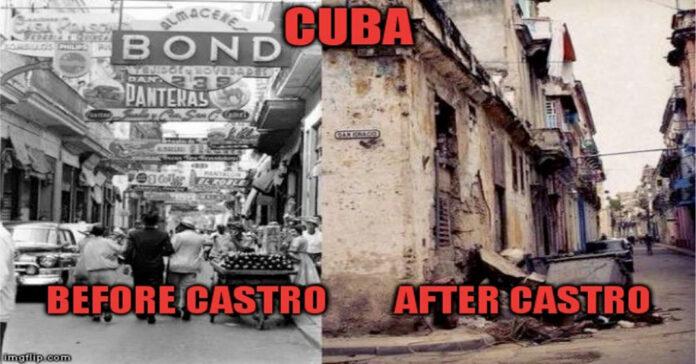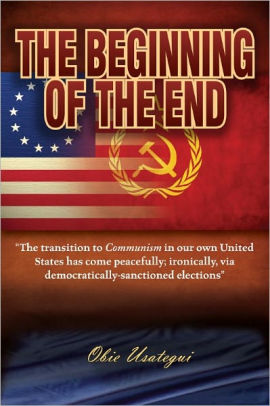Facebook is Trying to Censor Us
Don't let Facebook determine what you are allowed to see. Subscribe to our newsletter to get notified via email whenever we release new articles. Click here to subscribe.
Había en un corral una gallina que ponía huevos de oro. Su dueño, que todas las mañanas los recogía y vendía a buen precio, díjose entonces:—Si los huevos de la gallina son de oro, las entrañas, donde se forman, deben contener oro en abundancia. Mató a la gallina creyendo hacerse rico en poco tiempo. .—¡Bien merecido tengo el chasco, pues feliz estaba con mi gallinita viva que me daba un huevo todos los días! —exclamó el ambicioso, presa de honda frustración. Esta historia enseña que la ambición sin limites nunca es buena. En la vida hay que saber valorar lo que se tiene y ser paciente, a veces la impaciencia hace tomar las peores decisiones.
Fabula de Esopo
Por los años 50 existió un País que tenía un futuro de oro.
A pesar de dificultades políticas, corrupción estatal y una democracia frecuentemente interrumpida, esta pequeña isla rivalizaba y superaba a la mayoría de otros países con más historia y población.
El pueblo gozaba de un mercado libre, donde la iniciativa personal era recompensada. Existía una clase media, que iba en aumento progresivo, compuesta principalmente de pequeños comerciantes y profesionales. La educación estaba asequible para todas las clases sociales, con instituciones que iban de caras a gratis, incluyendo las universidades.
No todo era reluciente. Aunque el racismo era ilegal, existía discriminación. A pesar que los colegios públicos y la Universidad tenían gran calidad de profesores, eran más asequibles en las ciudades y pueblos cercanos a estas. La riqueza no llegaba a todos, existiendo desde multimillonarios a extrema pobreza.
Parte del pueblo de esta afortunada isla, no estaba feliz con la rapidez del progreso y deseaban más y más rápido. El grupo de descontentos estaba compuesto en su mayor parte por personas de clase media que por ambición y/o envidia deseaban la fortuna de otros.
Esta población no consideraba que el éxito de otros pudiera deberse a que ellos tenían mas capacidad intelectual, hacían más esfuerzo o a veces más suerte.
Pensaron que podían obtener “más oro”, menos trabajo, si pudieran recibir parte de las fortunas de otros. Con la excusa de “justicia social” y “justa repartición de riquezas”, se aliaron con el diablo social/comunista que se los prometía.
Como siempre ha sucedido el oro era producido por las gallinas que lo obtenían por su sacrificio personal. Al matar las “gallinas”, se acabo el oro.
Ese pequeño país, como seria ahora si la tiranía Castrista y los que la apoyaran no hubiera existido. Esopo escribió la respuesta en su corta fabula.
Desgraciadamente vivimos en nuestra nueva patria esta misma disyuntiva. Tenemos el cuchillo listo y la gallina en nuestras manos. Repetiremos los ejemplos de los anteriores fracasos como Cuba, Venezuela y demás?
ENGLISH TRANSLATION:
In a pen, there was a hen that laid golden eggs. Their owner, who collected and sold them every morning at a good price, then said to himself: “If the hen’s eggs are made of gold, the entrails, where they are formed, must contain gold in abundance.” He killed the hen believing he would get rich in a short time. — “I deserve this disappointment because I was happy with the live chicken that gave me an egg every day!” the ambitious exclaimed in deep frustration. This story teaches that boundless ambition is never good. In life you have to know how to value what you have and be patient, sometimes impatience makes you make the worst decisions.
Aesop’s Fable
In the 1950s there was a country that had a golden future.
Despite political difficulties, state corruption, and a frequently disrupted democracy, this small island rivaled and surpassed most other countries with more history and population.
The town enjoyed a free market, where personal initiative was rewarded. There was a middle class, which was growing progressively, composed mainly of small merchants and professionals. Education was affordable for all social classes, with institutions ranging from expensive to free, including universities.
Not everything was sparkling. Although racism was illegal, there was discrimination. Although the public schools and the University had high-quality teachers, they were more affordable in the cities and towns close to them. Wealth did not reach everyone, ranging from billionaires to extreme poverty.
Part of this fortunate island’s people were not happy with the speed of progress and wanted more and faster. The group of discontents was composed, for the most part, of middle-class people who out of ambition and/or envy desired the fortune of others.
This population did not consider that the success of others could be due to the fact that they had more intellectual capacity, made more effort, or sometimes more luck.
They thought that they could get “more gold” with less work if they could receive part of the fortunes of others. With the excuse of “social justice” and “just distribution of wealth”, they allied themselves with the social/communist devil who promised them.
As has always happened, gold was produced by chickens that obtained it through personal sacrifice. By killing the “chickens”, the gold ran out.
That small country, as it would be now if the Castroite tyranny and those who supported it had not existed. Aesop wrote the answer in his short fable.
Unfortunately, we live in our new homeland with this same dilemma. We have the knife ready and the chicken in our hands. Will we repeat the examples of the previous failures like Cuba, Venezuela, and others?



 When you subscribe, you’ll be notified directly via email every time we post a new article here on the Patriot Observer. I’ll also email you a digital copy of my book, “The Beginning of the End”, which has, unfortunately, become somewhat of a Crow’s Mouth in the way it predicted the path that this country would take under Barack Obama – the very same one that is now being continued by his lackey, Joe Biden.
When you subscribe, you’ll be notified directly via email every time we post a new article here on the Patriot Observer. I’ll also email you a digital copy of my book, “The Beginning of the End”, which has, unfortunately, become somewhat of a Crow’s Mouth in the way it predicted the path that this country would take under Barack Obama – the very same one that is now being continued by his lackey, Joe Biden.